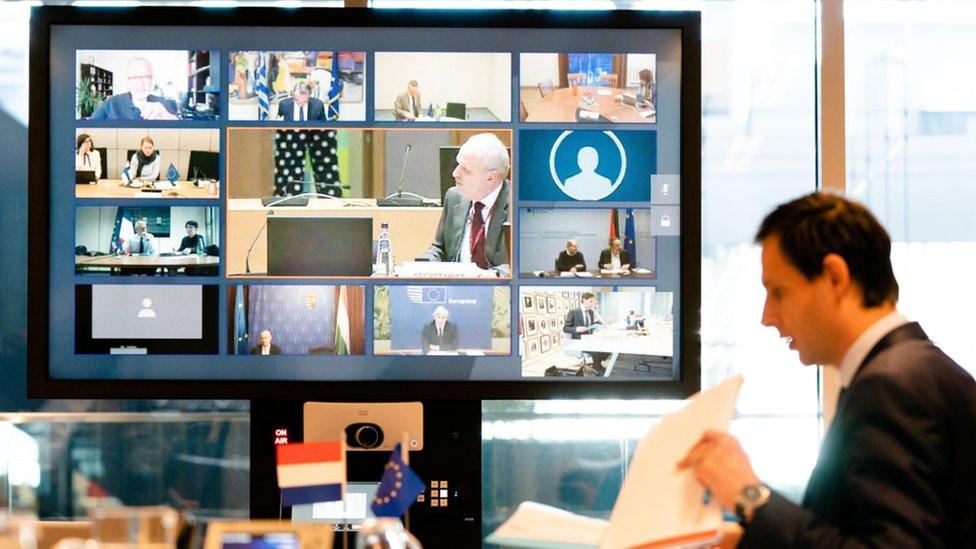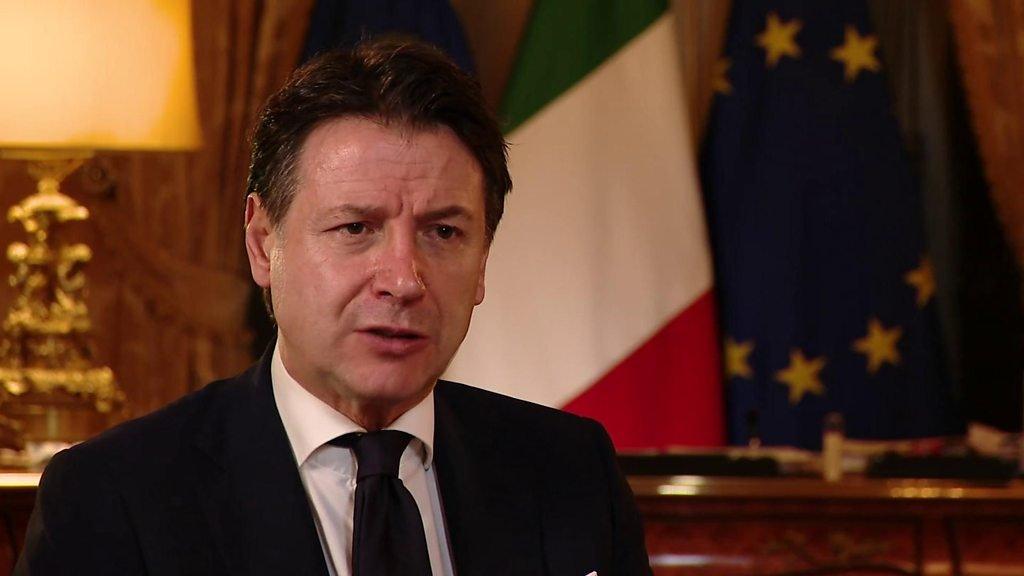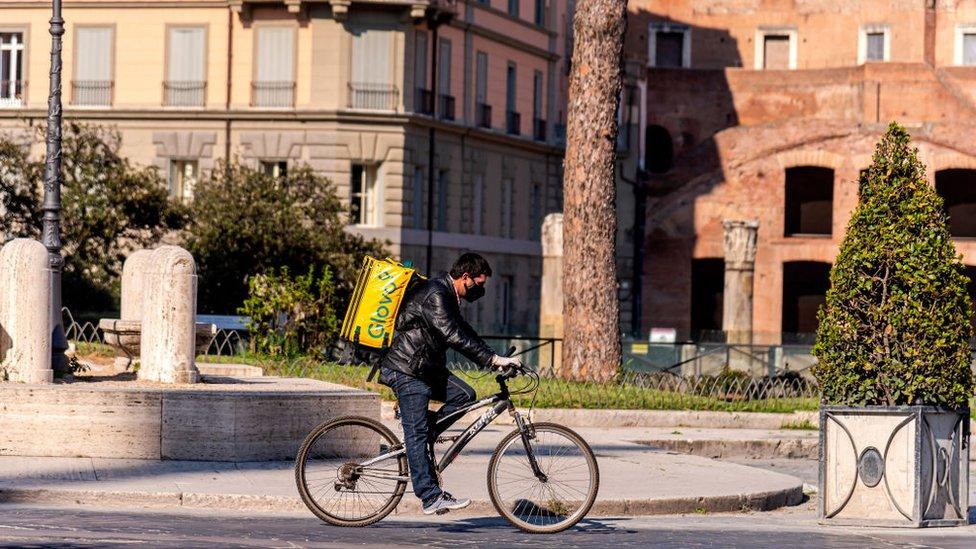Coronavirus: Are EU divisions banished after the deal?
- Published

As the deadlock intensified the Netherlands was portrayed as the country holding out against a deal
Crack open the Easter eggs. They've done it!
After two tortuous weeks of wrangling, EU finance ministers have agreed a number of common financial measures to protect the workers, businesses and EU countries most in need during the coronavirus pandemic.
These safety nets, as the EU is calling them, amount to €500bn (£430bn; $540bn). That's separate from the €750bn rescue package already announced by the European Central Bank.
There's talk too amongst EU leaders of an additional Recovery Fund (of up to another €500bn, if the French get their way) which countries could then access once the health crisis is over and attention turns to Europe's Covid-19-battered economies.
"Our faith in Europe has proven correct!" tweeted the Italian president of the European Parliament, David Sassoli triumphantly, as soon as EU finance ministers announced the deal.
So is he right: Is everything hunky-dory now in the EU? The dark mutterings of deep divisions banished?
Not really.
The EU is stumbling through this crisis as it has done through previous ones like the migration and the financial crises. The bloc is not about to disintegrate but scars will remain in countries that felt the chilly absence of EU solidarity in their hour of coronavirus need.
"This has not been our finest moment," a diplomat from an influential EU country told me. "Our response has come late and has been marred by nationalism. Solidarity went out the window with the first coronavirus victim."

Talks chairman Mário Centeno had the task of forging a compromise between the two sides
The diplomat spoke of France and Germany's initial refusal to export medical protective equipment, meaning Italy was forced to beg for some.
He complained of the damage done to the whole of the single market as EU countries shut borders with one another in an attempt to protect themselves from the spread of the virus.
Then there's the recent ugly and very public debate about coronavirus debt-sharing. Spain and Italy demanded it, in the forms of coronabonds. Wealthier, cautious Germany and the Netherlands gave a flat no.
Again, each country prioritised national concerns over the EU as a whole. Understandable, but hardly a poster child for European cohesion.
The Italian prime minister demanded coronavirus-related debt sharing between member states. If he didn't, he knew he would be attacked by populist nationalist politicians at home.
Italian PM Giuseppe Conte told the BBC in April how the lockdown could be eased
Deep down, Giuseppe Conte must have realised Germany and the Netherlands would never say yes. They face populist Eurosceptic MPs back home too. They'd have been vilified for writing a "blank cheque" with taxpayers money to finance southern Europe with all its perceived economic weaknesses.
So is the EU fit for purpose?
That depends which purpose. If the main focus of membership is being part of the lucrative single market, then yes, the European Union is fit for purpose.
But if it's an all-for-one-and-one-for-all kind of union, then the coronavirus crisis has found the EU lacking.
Of course the emergency package announced by EU finance ministers (still to be signed-off by EU leaders) is not by any means insignificant. It will be welcomed in Italy and Spain.
Germany may no longer be taking the lead in trying to find or force solutions to EU crises, but it has been lauded and applauded for taking in Covid-19 patients from Italy and France and for sending ventilators to the UK. Romania is one of a number of countries sending teams of doctors and nurses to other EU nations in need of help.

A SIMPLE GUIDE: How do I protect myself?
AVOIDING CONTACT: The rules on self-isolation and exercise
LOOK-UP TOOL: Check cases in your area
MAPS AND CHARTS: Visual guide to the outbreak
VIDEO: The 20-second hand wash

When push comes to shove, in a globalised, unpredictable world, most in the EU think it's better to stay together imperfectly than to stand alone. No EU member is seriously agitating to leave.
But, the Covid-19 crisis could have been a key moment to prove nay-sayers wrong. Instead EU actions thus far have added fuel to the Eurosceptic debate.
EU leaders have another chance to demonstrate solidarity when it comes to rebuilding European economies after the health crisis abates. It's in their own interest. The EU's reputation and the robustness of the single market depend on it.
- Published9 April 2020

- Published10 April 2020

